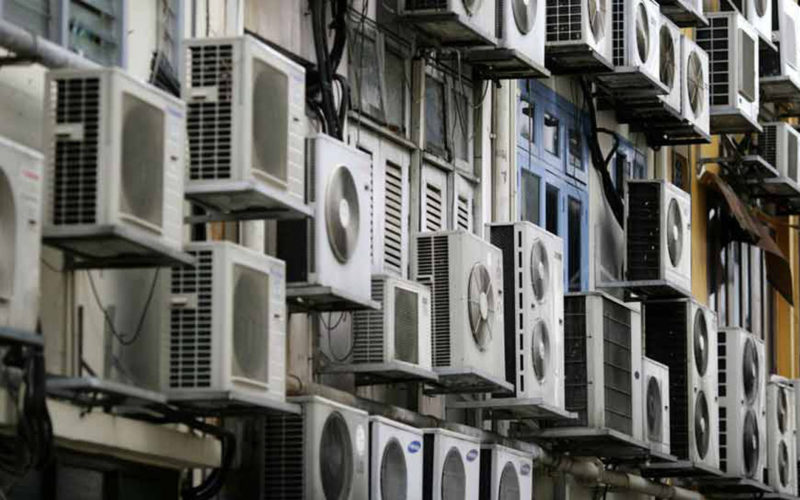Pollution has become a growing problem of the 21st century, especially in India. It was a moment of national shame when WHO reported that most of India’s cities are in their list of “most polluted cities”. While littering on the streets and in the oceans continue to be a major concern, the growing level of air pollution has people breathing in poison. And since it isn’t possible for the Government to tackle all of them at once, they’ve decided to make the air clean first.
According to The Economic Times, the Power Ministry has decided to regulate AC temperatures in India. Power Minister R.K. Singh said that,

“Every one degree increase in the air-conditioner temperature setting results in saving of 6 per cent of electricity consumed.”
The power ministry has advised all air conditioner companies to maintain the default temperature setting at 24 degrees Celsius. This is a move to promote energy efficiency and one of the best ways to curb global electricity demand in the next few years.
The 24 to 26 degree Celsius limit on AC temperatures will be labelled on the machines for now. However, it’ll be made mandatory later after doing a detailed survey.
The Ministry of Power has asked the major AC manufacturers to put up labels on their air conditioners to indicate that 24-26 degrees is the optimum temperature required. After that they’ll conduct a six-month survey, collecting feedback to decide if that limit will be made mandatory.
“If all the consumers adopt, this will result in savings of 20 billion units of electricity in one year alone.”

This move is similar to Japan‘s, who regulated AC temperatures to around 28 degree Celsius and ditched formal attire in workplaces to beat the heat. Additionally, they came up with alternative methods to the AC in order to stay cool during the summer. And the results were apparent when Japan was declared one of the least polluted countries in 2013.
We all know how harmful chlorofluorocarbons emitting from ACs are. But the electricity they consume can be even more harmful. The Executive Director of International Energy Agency, Fatih Birol said,

“Growing demand for air conditioners is one of the most critical blind spots in today’s energy debate. Setting higher efficiency standards for cooling is one of the easiest steps governments can take to reduce the need for new power plants, cut emissions and reduce costs at the same time.”
The Bureau of Energy Efficiency has reported that the total connected load in India due to air conditioning might reach 200 GW by 2030. That number comes from current market trends and the 15-fold increase in energy consumption that India has seen since 1990.
I know how India reacts to banning or mandatory limits but this is something that’s very necessary. It’s important to stay cool but if that’s coming at the expense of Earth’s environment, then it’s not cool at all. So, although this rule by Ministry of Power might sound harsh, but it’s the type of schooling we need right now to save our one and only planet.




